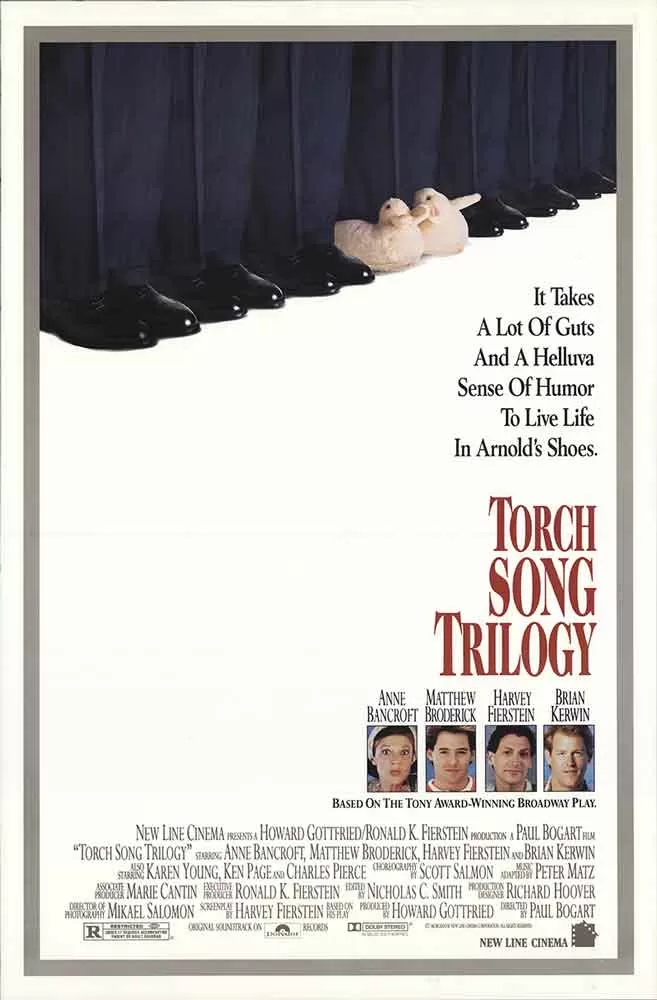Torch Song Trilogy (1988) is one of those films that boldly leaps into your heart without asking for your approval. Adapted from the award-winning stage play by Harvey Fierstein, it takes us on a journey through three crucial moments in the life of Arnold Beckoff — a New York-based drag queen with a lot of feelings and an even bigger personality.
A Drag Queen with Emotion (and Intensity)
Arnold, portrayed by Fierstein himself, is far from being a simple stereotype. He’s a layered, loud, intensely passionate individual who craves the same things many of us do — love, belonging, and a bit of tranquility. From the very first scene of him lip-syncing in a smoky nightclub, it’s clear that this film is about more than just wigs and sharp one-liners (though those certainly make their appearance).
At the start, Arnold becomes infatuated with Ed (played by Brian Kerwin), a charming but closeted schoolteacher. Their connection is messy, filled with yearning and disappointment — and it never fully comes to fruition. Enter Alan (Matthew Broderick), a younger man who brings real joy and hope into Arnold’s life. Together, they even dream of adopting a child. Just when things seem to be looking up for Arnold… well, let’s just say the movie isn’t afraid to tear your heart apart.
Funny quote: “You know what it’s like to be with a man for eight years, only for him to leave you for a woman? I do… and I’m still trying to figure out what she had that I didn’t!”
The Most Crucial Conversation in Torch Song Trilogy (1988)
The film’s final act introduces us to Arnold’s mother, portrayed by the incomparable Anne Bancroft, and let’s just say — there’s a lot of unresolved tension between them. Their scenes are a mix of explosive, hilarious, painful, and ultimately, redemptive moments. The mother-son confrontation is undoubtedly one of the most memorable in queer cinema.
Emotional quote: “If you can’t respect me — you’ve got no business being in my life.”
Why Torch Song Trilogy Still Holds Significance
This isn’t a flashy film. It doesn’t rely on dramatic spectacle or over-the-top emotions. Instead, it focuses on raw vulnerability, brutal honesty, and dialogue that cuts deep. Fierstein’s writing — drawn from his own life and stage work — remains timeless.
Above all, Torch Song Trilogy is a film about survival — about holding onto who you are when the world expects you to shrink, and about creating a family in places where it’s hard to find one. In a time before marriage equality or mainstream acceptance, this film boldly proclaimed: “We are here. We love. We matter.”
And decades later, it continues to shout that message loud and clear.






